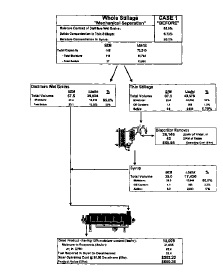South Bend, IN. The Northern District of Indiana has granted Defendant, NuVasive, Inc.’s request to transfer the patent  infringement suit filed by Plaintiff, Warsaw Orthopedic, Inc., to the Southern District of California for the convenience of the parties and witnesses, and in the interest of judicial economy.
infringement suit filed by Plaintiff, Warsaw Orthopedic, Inc., to the Southern District of California for the convenience of the parties and witnesses, and in the interest of judicial economy.
Warsaw Orthopedic, Inc. owns the three patents at issue and has various license arrangements to make, import, and sell products under these patents. On August 17, 2012, Warsaw and its licensees brought suit in the Northern District of Indiana against NuVasive, Inc. alleging infringements of the three patents in the manufacture and sale of medical devices and procedures used in spinal surgery. NuVasive filed their motion for transfer on September 4, 2012, arguing that transfer to Southern District of California would be more convenient for the parties, witnesses and in the interest of justice because of the similarity to a pending patent infringement case. NuVasive is also a party to a case in California involving thirteen patents related to medical devices and procedures used in spinal surgery, which is being litigated in three phases. The first phase concluded on September 20, 2011 and phase two has begun the discovery process. Although venue is proper in both Indiana and California because NuVasive has the requisite minimum contacts to Indiana yet has established the business in California, the court ultimately determined that in the interest of justice and for the conveniences of the parties and witnesses, transfer of the instant case to California is proper. The court determined that a stronger relationship exists between the current events and the California case and that the California court is already familiar with the parties and related issues so no undue time would need to be expensed. Furthermore, evidence to Warsaw’s earlier willingness to consent to transfer in exchange for incorporation into phase two of the California case demonstrated the seemingly tenuous relationship to Indiana and carried significant weight in the court’s analysis. Also, the alleged infringement predominately occurred in California and more non-party witnesses are located in California, with none residing in Indiana. Therefore, NuVasive’s motion for transfer to the Southern District of California was granted.
Practice Tip: Pursuant to 28 U.S.C. § 1404 et seq., Granting transfer is solely within the discretion of the court and Federal district courts may transfer any civil action to any other district for convenience of parties and witnesses and in the interest of justice if venue is proper in both courts. Thus separate analysis of venue, convenience of witnesses and parties and interest of justice must be undertaken.
 Indiana Intellectual Property Law News
Indiana Intellectual Property Law News






